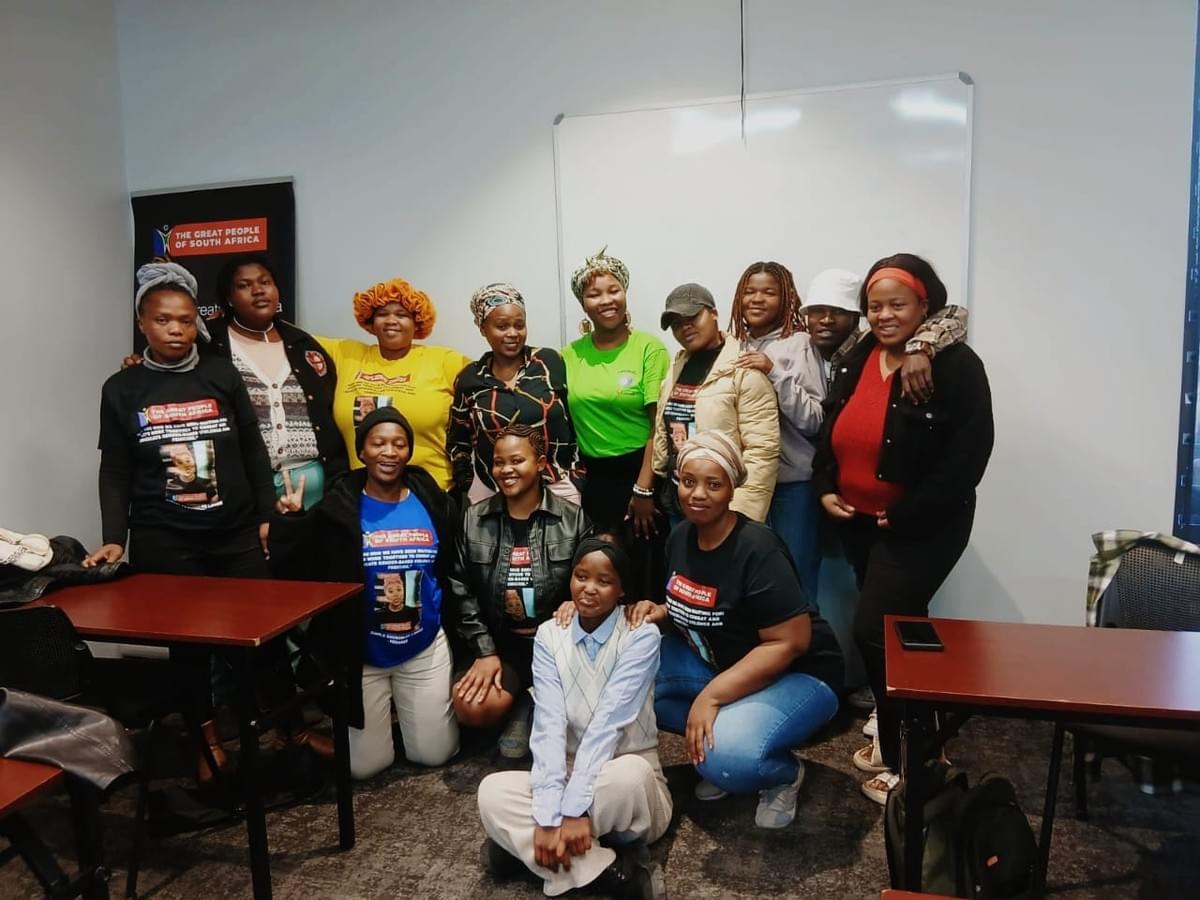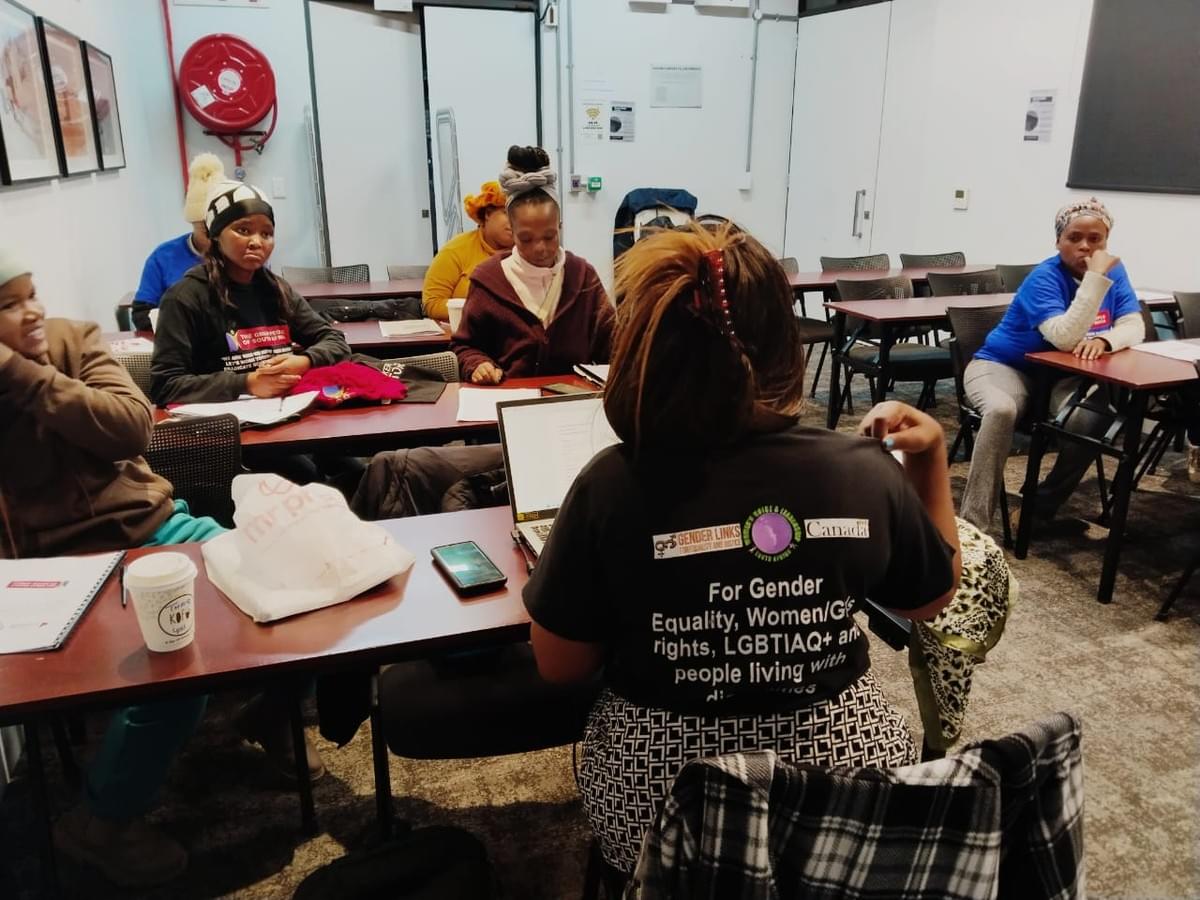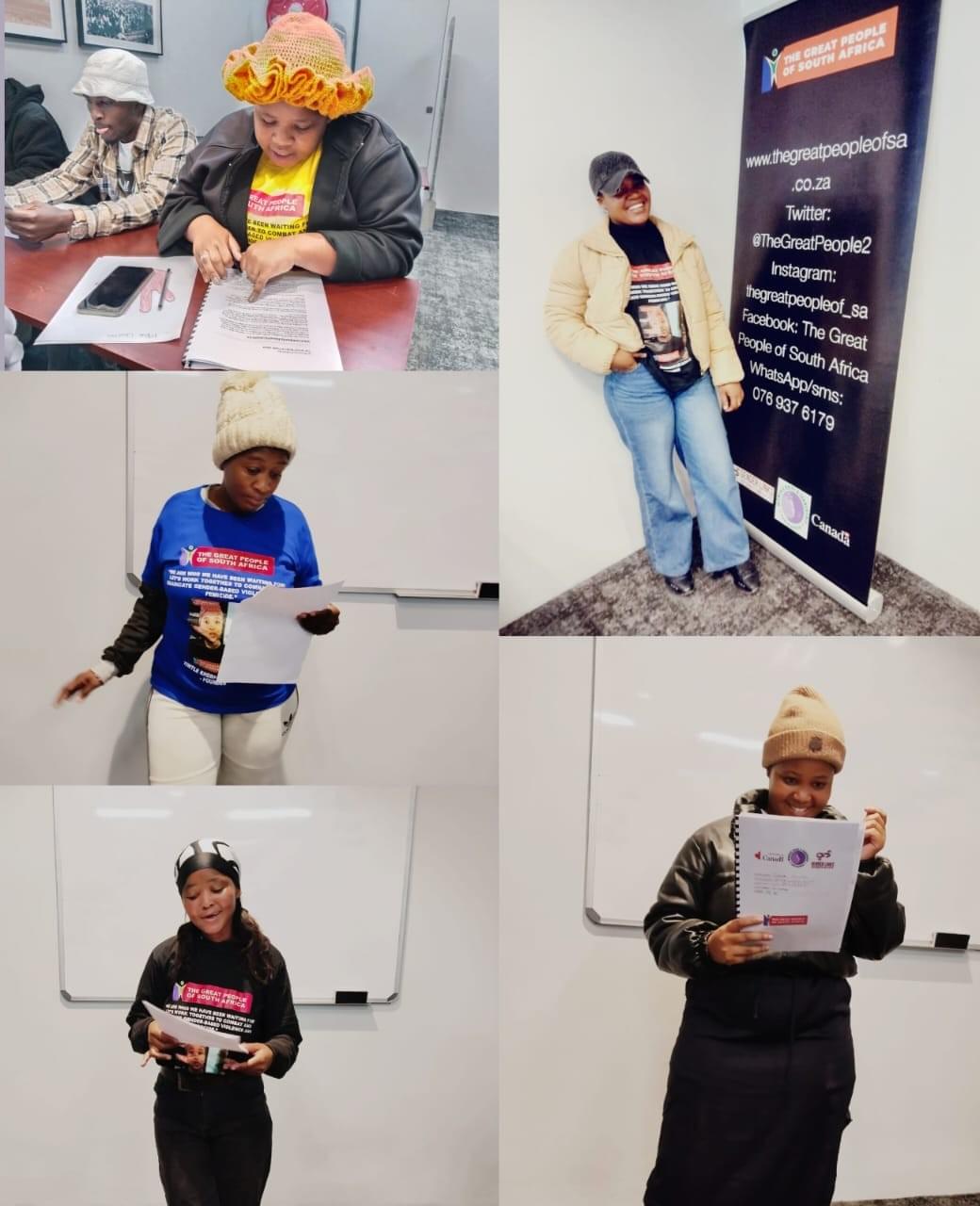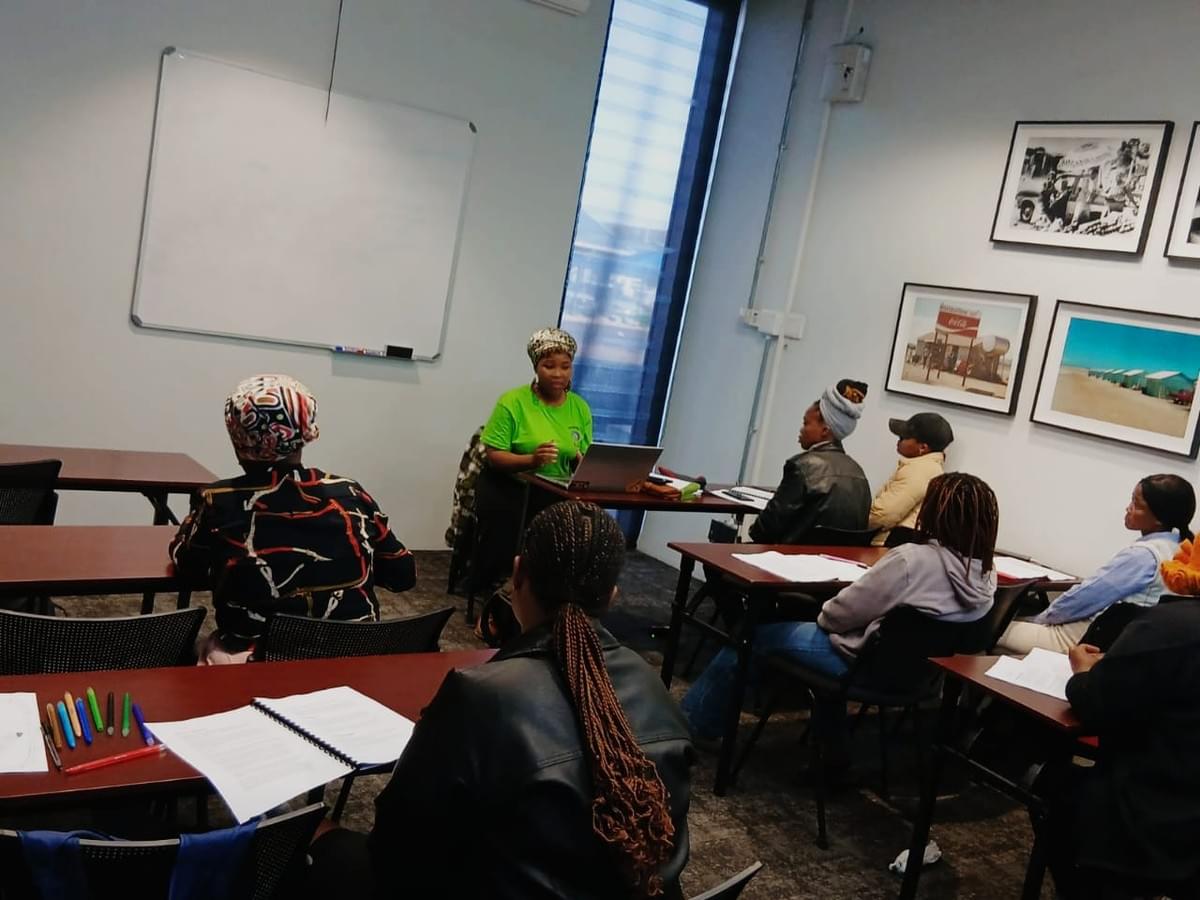
In a country where survivors of gender-based and sexual violence are often failed by the very justice system meant to protect them, The Great People of South Africa is rewriting that narrative — one empowered voice at a time.
Thanks to the unwavering support of the Renewed Women’s Voice and Leadership South Africa Fund, in partnership with Gender Links and Global Affairs Canada, our survivor-led organisation has launched a groundbreaking, community-based paralegal training programme. This isn’t just a training — it’s a movement. A revolution. A rising.
The community-based paralegal training program was born out of deep personal pain and a desire to ensure no survivor is ever left alone or unsupported. As the founder of The Great People of South Africa, I created this program because when I was gang-raped in 2015, I had no access to services, support, or justice.
Studying law later opened my eyes to the power of community-based paralegals—individuals trained to bridge the gap between marginalized communities and the legal system. Had such people existed in my community then, they would have known how to help me. This program exists so that others won’t suffer in silence as I once did.
This first cohort of trailblazers includes 12 remarkable trainees — 11 young women and 1 young man — who are stepping into the powerful roles of future paralegals, community champions, and first responders to gender-based violence and child sexual violence.
They are not only studying the basics of the law; they are becoming the law’s fiercest advocates in spaces where justice often falters.

But what makes this training truly revolutionary is not just the legal education — it's the voice behind it. We’ve integrated blogging and digital activism as a core component of the programme, because we believe the courtroom isn’t the only place where justice must be fought. It must be tweeted, blogged, and broadcasted.
It was during my WOSSO Fellowship that I was introduced to blogging, and through it, I found my voice—and my healing. Blogging gave me the courage to speak my truth, to make sense of my trauma, and to transform my pain into power.
That’s why we’ve integrated blogging into our community-based paralegal program. The trainees are survivors too, just like me, and I want them to discover the same healing that I found. Because writing doesn’t just tell stories—it sets us free
Here, survivors are learning to blog in their own languages. They are telling their truths. They are reclaiming the internet — not just as a tool, but as a battlefield for justice. Every post is a form of resistance, every word a call to action.
They’re not just becoming paralegals — they’re becoming digital activists, citizen journalists, and community storytellers. They are learning how to monetize their blogs, turning their pain into power, and their advocacy into sustainable livelihoods. Because dignity doesn’t stop at healing — it extends to economic justice too.

Our theory sessions have been deeply moving — filled with courtroom simulations, role-playing, survivor-led dialogues, and critical thinking. The room buzzes weekly with raw energy and a renewed sense of purpose.
We are preparing for practical visits to SAPS, the courts, and justice service sites — all designed to anchor this learning in real-life action.
As we look ahead to graduation — whether in Women’s Month or Heritage Month — we’re reminded of the dual power in our work. Women’s Month calls us to honour the fierce leadership of women across generations. Heritage Month calls us back to the richness of our languages, cultures, and indigenous forms of organising. And in between the two lies our truth: our justice is both ancestral and futuristic.

We are so proud of every trainee who has dared to step into this space — survivors who are becoming symbols of resilience, leadership, and transformation.
To the Women’s Voice and Leadership South Africa Fund, Gender Links, and Global Affairs Canada — thank you for believing in us. Because of your support, survivors are rising — in courtrooms, in communities, and across digital spaces, rewriting what justice looks like in our lifetime.
To our trainees: Your voice matters. Your story matters. And now, armed with law in your heart and a blog at your fingertips — the world will know your name.

